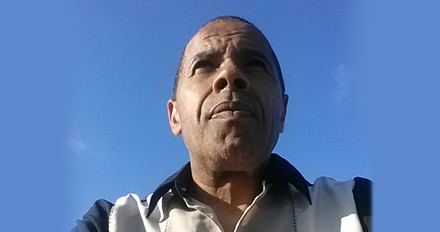Editorials
Mental Illness and African Nova Scotian Communities

From the 1960s on down, many labels have been placed on African Nova Scotians who exhibited differing behaviors. These labels include “learning disabled,” “crazy,” “animalistic,” et cetera. One could venture to say most psychologists and psychiatrists in the province of Nova Scotia have little or no understanding of the lives, culture, heritage, lineage and traditions of African Nova Scotians.
Psychologists and others are said to play an essential role in helping people modify their behaviour to prevent and recover from chronic mental and physical illnesses. But these roles are limited when there is little understanding of the African Nova Scotian experience.
African Nova Scotians are just as much candidates for mental illness as any others, yet have limited access to and receive substantially less treatment.
Although mental health professionals in Nova Scotia have extensive training, they lack culturally appropriate training. As far as I am aware, there are fewer than 10 African Nova Scotian mental health counsellors, including myself. There needs to be an increase in funding for mental health services that includes culturally-sensitive programming and services. This can help reduce stigma and reduce much of the suspicion that many African Nova Scotians have of the mental health system. Equally, such programs will increase awareness and provide culturally competent services that promote inclusion.
Many African Nova Scotians are suspicious of the extent of mental health system because they do not see themselves in the picture. Personally, I suffer from anxiety and the mental health professionals I have visited had no clue or understanding about my culture, heritage, customs, traditions or the impact that racism has had on my mental wellbeing. Likewise, my father and many other seniors in the community suffer high levels of mental distress based on the power and control of racism.
Many organizations, if they had the necessary funding in place, could be the instruments and vehicles for necessary change—especially if they’re non-profit. The key objectives of Afro-centric mental health services are programs and services based close to home, featuring community involvement (including set-up, monitoring and administration) and a timely response strategy to deal with youth in crisis in our communities.
There must be a concerted effort put forth to affect the action needed on Afro-centric mental health services. African Nova Scotians suffer in silence, not being privy to programs and services they can identify with. With differences in heritage, culture and lineage, the time is past due for services and programs that accommodate the unique differences of African Nova Scotians.
African Nova Scotians have been in Nova Scotia over 500 years, and deserve the same opportunities, considerations and health care as other Nova Scotians. With our aging population, federal and provincial governments have activated plans to attract and to bring others here, which is a good thing. But I encourage governments not to forget the peoplewho are already here.
Understanding heritage and ethnicity is the difference between healing and isolation.
We must develop and maintain the capacity to provide for all, not just the haves or the chosen few. To do so is to support and embrace diversity in all its splendour and glory.
Voice of the City is a platform for any and all Halifax individuals to share their diverse opinions and writings. The Coast does not necessarily endorse the views of those published. Our editors reserve the right to alter submissions for clarity, length and style. Want to appear in this section? Submissions can be sent to voice@thecoast.ca.
Editorials
Our Love-Hate Relationship with Gimmicks

When Jennifer Egan’s novel “A Visit from the Goon Squad” won the Pulitzer Prize, in 2011, much fuss was made over its penultimate chapter, which presents the diary of a twelve-year-old girl in the form of a seventy-six-page PowerPoint presentation. Despite the nearly universal acclaim that the novel had received, critics had trouble deciding whether the PowerPoint was a dazzling, avant-garde innovation or, as one reviewer described it, “a wacky literary gimmick,” a cheap trick that diminished the over-all value of the novel. In an interview with Egan, the novelist Heidi Julavits confessed to dreading the chapter before she read it, and then experiencing a happy relief once she had. “I live in fear of the gimmicky story that fails to rise above its gimmick,” she said. “But within a few pages I totally forgot about the PowerPoint presentation, that’s how ungimmicky your gimmick was.”
The word “gimmick” is believed to come from “gimac,” an anagram of “magic.” The word was likely first used by magicians, gamblers, and swindlers in the nineteen-twenties to refer to the props they wielded to attract, and to misdirect, attention—and sometimes, according to “The Wise-Crack Dictionary,” from 1926, to turn “a fair game crooked.” From such duplicitous beginnings, the idea of gimmickry soon spread. In Vladimir Nabokov’s novel “Invitation to a Beheading,” from 1935, a mother distracts her imprisoned son from counting the hours to his execution by describing the “marvelous gimmicks” of her childhood. The most shocking, she explains, was a trick mirror. When “shapeless, mottled, pockmarked, knobby things” were placed in front of the mirror, it would reflect perfectly sensible forms: flowers, fields, ships, people. When confronted with a human face or hand, the mirror would reflect a jumble of broken images. As the son listens to his mother describe her gimmick, he sees her eyes spark with terror and pity, “as if something real, unquestionable (in this world, where everything was subject to question), had passed through, as if a corner of this horrible life had curled up, and there was a glimpse of the lining.” Behind the mirror lurks something monstrous—an idea of art as device, an object whose representational powers can distort and devalue just as easily as they can estrange and enchant.
Editorials
Stakeholder vs. Shareholder Capitalism: What Is Ideal Today?

Haywood Kelly:
At Morningstar, we’re proud that our research teams not only operate
independently but that our analysts are encouraged to explore ideas and
raise contrarian viewpoints. The enemy of any research organization is
groupthink. A research organization needs to hire people who aren’t
afraid of challenging the status quo and who are always thinking about
how to foster a culture where people feel comfortable speaking up and
encouraging us all to think harder and sharper.
And we debate just about everything. Is the market overvalued? Should
private equity be allowed into retirement plans? What categories are
most suited to active investors? How much should an annuity cost? And
I’d say one of the hottest areas of debate these days is ESG. Does ESG
help or hurt investing performance? What ESG risks are truly material to
cash flows? What should be included in a “globe rating,” and on and on.
Within the field of sustainable investing and with it evolving so rapidly, there is really no facet that we don’t debate. And today, we’ve asked a group of researchers from across Morningstar to represent opposing sides of a particular ESG argument. But we didn’t have to look far for one that’s taken centerstage in 2020.

Editorials
HILL: The Great Reset

If you haven’t heard about The Great Reset yet, you will.
Soon.
Joe Biden’s “Build Back Better” slogan, of which no one knew the meaning or purpose, is a direct lift from The Great Reset Manifesto, let’s call it, concocted by the dreamy-eyed elites of the world who attend annual ritzy, star-studded winter retreats in Davos, Switzerland under the auspices of the World Economic Forum.
“In short” the wealthy elites of the world proclaim to the rest of the world, “we need a ‘Great Reset’ of capitalism.”
To save the world, these elites demand “the world must act … to revamp all aspects of our societies and economies, from education to social contracts and working conditions; …every country… must participate, and every industry, from oil and gas to tech, must be transformed”.
In other words, these elites demand that the entire world embrace socialism; impose much higher wealth taxes, which they will avoid paying, that’s a given; promulgate onerous regulations on banking and industry; and pass massive Green New Deals, which would “only” cost U.S. taxpayers and consumers $93 trillion to implement.
Liberal socialists never say anything about cutting government spending, lowering government regulatory burdens on business and people, getting rid of archaic government programs that have been proven ineffective, or removing legal barriers for people who want to start a business and provide a better life for their family.
Liberal socialists simply believe a lot more government is good. Conservatives don’t. It is pretty much that simple.
Every command issued by Great Reset/One World Government proponents strikes at the core of American individualism. American individualism and self-initiative led to the creation of such ground-breaking innovations as the IPhone, Amazon and Google, nothing close to which has ever been invented under socialist or communist regimes. Wait until the Great Reset dries up American innovation; Millennials and liberals will then see the adverse side of too much governmental control of our economy, then they will be ready for more free market capitalism.
Americans should understandably feel a little queasy when they hear Prince Charles or Canadian PM Justin Trudeau gush about how the COVID pandemic provides the “perfect opportunity” to change everything. Only totalitarians at heart think a pandemic or crisis is “a great time to impose their will on the world.” Hitler took power during the post-WWI economic depression in Germany to “restore the Fatherland,” to name perhaps the worst case in recent history.

-

 Lifestyle8 months ago
Lifestyle8 months agoOntario Line subway construction permanently shuts down beloved Toronto bakery
-

 Business8 months ago
Business8 months agoThe Canadian Armed Forces are hiring for several non-combat military jobs
-

 Business8 months ago
Business8 months agoPorter’s new loyalty program promises to match Air Canada’s Aeroplan status
-

 Business8 months ago
Business8 months agoPeople call out Sobeys for ridiculous prices after another expensive find at Ontario store
-

 Business8 months ago
Business8 months ago‘Here, everything feels much closer’: Entrepreneur says leaving Toronto for Innisfil good for business
-

 Lifestyle8 months ago
Lifestyle8 months agoWoman crashes car and runs around highway with bottle of booze on typical day in Toronto
-

 Lifestyle8 months ago
Lifestyle8 months agoCanada considers capping international student visas to address housing crisis
-

 Business8 months ago
Business8 months agoBeauty Week is back at Hudson’s Bay in Toronto and it’s time to get glam



